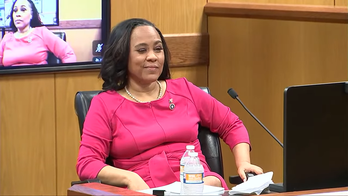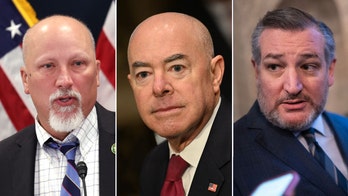Over the course of the next year, the American people will decide who to elect as their president in 2012. That decision will be based for many on the policies of the candidates.
During this same period, the U.S. Supreme Court will be deciding cases affecting important policy in such areas as immigration, voting rights and health care. Their role in doing so is the primary reason why presidential elections are important: presidents make lifetime appointments of federal judges who render decisions that affect virtually every aspect of our lives.
During this presidential campaign, much has been said and written about the challenges to our economy, domestic policy, foreign policy and national security. Relatively little, however, has been said about our judiciary, other than assertions that judges have usurped the role of our elected branches of government and exceeded their authority under the Constitution.
When I interviewed John Roberts and Sam Alito for possible appointment to the U.S. Supreme Court in 2005, I asked them to explain the limits on the Supreme Court. What I was listening for was an acknowledgment that there are boundaries to the court’s power, an understanding that while the court’s role is important, it is limited in our system of government.
President George W. Bush insisted on, and therefore I looked for, men and women to serve as federal judges who understood and respected the separation of powers envisioned by the framers of our Constitution.
Our system of government is based on a foundation of the rule of law. While I believe in a strong and independent judiciary, it does not mean judges should be immune from scrutiny and criticism if they do not do their job. However, recommendations or measures that go beyond criticism, that are intended to intimidate, or have the effect of intimidating judges, or that suggest judicial decisions should be ignored, are unwise and repugnant to an ordered society.
Judges sometimes make mistakes, but throughout our history the judiciary has shown it is capable of correcting itself in most cases. The surest way to protect our values and way of life is to maintain a strong and independent judiciary. The surest way for the judiciary to protect its independence is to continue to make decisions based on neutral principals that do not elevate the courts above the other branches of government.
This is a dialogue worth having in the debate over the presidency.
Alberto R. Gonzales is the former United States Attorney General and the former Counsel to President George W. Bush. He is currently the Doyle Rogers Distinguished Chair of Law at Belmont University, Of Counsel at the Nashville law firm of Waller Lansden, and a regular columnist for Fox News Latino.
Follow us on twitter.com/foxnewslatino
Like us at facebook.com/foxnewslatino




